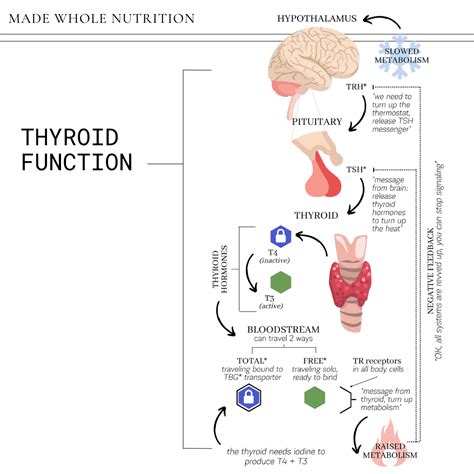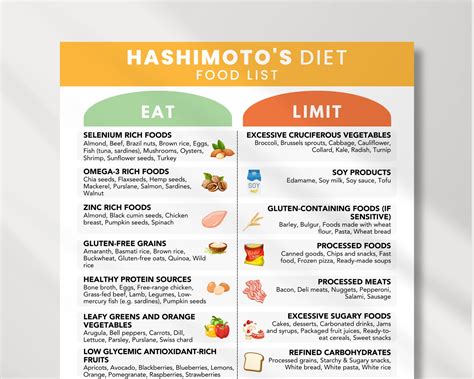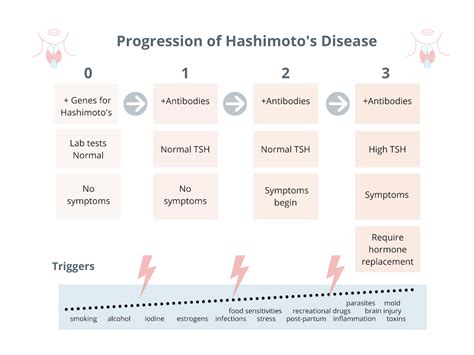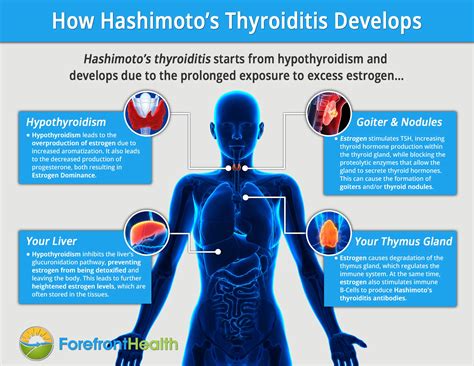Intro
Hashimoto's thyroiditis is an autoimmune disorder that affects the thyroid gland, leading to hypothyroidism. The condition can cause a range of symptoms, including fatigue, weight gain, and skin problems. While there is no cure for Hashimoto's, certain dietary changes can help alleviate symptoms and promote overall health. In this article, we will explore the importance of nutrition in managing Hashimoto's and highlight five foods that can be beneficial for individuals with the condition.
Living with Hashimoto's can be challenging, but making informed dietary choices can significantly impact the management of symptoms. A well-balanced diet that includes nutrient-dense foods can help support thyroid function, reduce inflammation, and promote overall well-being. On the other hand, a diet that is high in processed foods, sugar, and unhealthy fats can exacerbate symptoms and worsen the condition. By understanding the role of nutrition in Hashimoto's and incorporating the right foods into their diet, individuals with the condition can take a proactive approach to managing their health.
Managing Hashimoto's requires a comprehensive approach that incorporates lifestyle changes, stress management, and dietary modifications. While medication may be necessary to regulate thyroid hormone levels, a healthy diet can play a crucial role in supporting thyroid function and reducing symptoms. Certain foods have been shown to have a positive impact on thyroid health, while others can trigger inflammation and worsen symptoms. By making informed dietary choices, individuals with Hashimoto's can take control of their health and improve their overall quality of life.
Introduction to Hashimoto's Diet

Key Principles of a Hashimoto's Diet
A Hashimoto's diet is based on several key principles, including: * Eating whole, unprocessed foods as much as possible * Avoiding foods that trigger inflammation and worsen symptoms * Incorporating foods that support thyroid function and reduce inflammation * Staying hydrated and limiting sugary drinks * Managing stress and getting enough sleepFoods that Support Thyroid Function

The Benefits of Omega-3 Fatty Acids
Omega-3 fatty acids, particularly EPA and DHA, have been shown to have anti-inflammatory effects and support thyroid function. Foods that are rich in omega-3 fatty acids, such as fatty fish, can help reduce inflammation and promote overall health.5 Foods for Hashimoto's

Incorporating these Foods into Your Diet
Incorporating these foods into your diet can be easy and delicious. Try adding fatty fish to your meals, snacking on sweet potatoes and avocados, and adding berries and leafy greens to your salads and smoothies.Managing Hashimoto's with Diet and Lifestyle

The Importance of Stress Management
Stress can exacerbate symptoms of Hashimoto's, making it essential to manage stress through techniques such as meditation, yoga, and deep breathing.Conclusion and Next Steps

We invite you to share your experiences and tips for managing Hashimoto's in the comments below. Have you found any specific foods or lifestyle changes to be particularly helpful in reducing symptoms and promoting overall health? Share your story and help others who may be struggling with this condition.
What are the most common symptoms of Hashimoto's?
+The most common symptoms of Hashimoto's include fatigue, weight gain, skin problems, and hair loss. Other symptoms may include cold intolerance, constipation, and depression.
Can diet alone cure Hashimoto's?
+No, diet alone cannot cure Hashimoto's. While dietary changes can help alleviate symptoms and promote overall health, medication may be necessary to regulate thyroid hormone levels.
What are some common triggers for Hashimoto's symptoms?
+Common triggers for Hashimoto's symptoms include stress, gluten, sugar, and unhealthy fats. Other triggers may include certain medications, hormonal changes, and environmental toxins.
